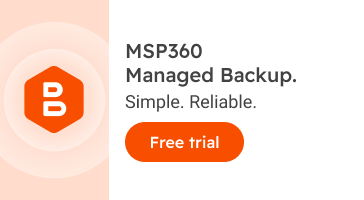When it comes to choosing the right products and services, having maximum choice and flexibility is key. However, vendor lock-in factors can prevent managed services providers (MSPs) from realizing the full potential of their business by choosing the best providers.
Vendor lock-in is when an MSP (or any other type of business) is entirely dependent on a vendor for products and services, or faces substantial switching costs that prevent it from migrating to another provider. This can happen for a specific technology, such as a public cloud provider, or a service provider.
Vendor lock-in makes it difficult for an MSP to ensure they are getting the best prices or market offers from their providers, as well as preventing them from having the flexibility they need in order to adapt as their business strategy requirements change.
According to a recent survey of CIO priorities, 68 percent of CIOs said they were worried about vendor lock-in, particularly as it relates to the public cloud. In addition to the cloud, 78 percent said they were concerned about lock-in around software-as-a-service solutions, and 76 percent said they were concerned about on-premise-software lock-in.
Taking Steps to Prevent Vendor Lock-In
The key for navigating around vendor lock-in and preventing it from happening to your business is to plan ahead. This starts from the very beginning with the contract for the product or services. An MSP should work to negotiate their exit strategy as part of this initial contract, to ensure that down the road there is the option to make a change if needed.
An MSP should also work to make sure that their data can be easily migrated. To ensure that data can be easily migrated, an MSP will need a clear understanding of technology dependencies and to ensure that apps and data are portable where possible. These dependencies could include APIs, configurations, heavily customized options, and other features that don’t support vendor migration.
Vendor lock-in is a particular challenge for public cloud environments, such as Amazon Web Services (AWS), Microsoft Azure or Google Cloud, where vendor lock-in can prevent an MSP or their customers from moving from one cloud provider to the next. This prevents an MSP from leveraging the pricing advantages of a competitive cloud environment, as well as the different benefits of each provider. By taking steps to ensure that their data can be easily migrated, as well as perhaps leveraging a multi-cloud, hybrid cloud, or even partial on-premise strategy, they can help prevent full vendor lock-in.
Further reading Public vs Private Cloud Storage vs Vendor Cloud: What Is Best for Backup
Making the Most of the Situation
On the flip side, there are some benefits to intentionally locking yourself in with a certain provider. For instance, some companies will reward long-term MSP customers for their loyalty. On top of that, locking in with legacy technology providers — meaning those that you can’t replace or update — ensures that vendors continue to support the technologies and your overall strategy. However, it’s important that these decisions are a conscious choice by the MSP, versus a forced decision by the vendor, in order to prevent any negative impacts.
While there are some steps an MSP can take to limit the risk of vendor lock-in, the reality is that in some senses it will be inevitable. But, by planning ahead and recognizing the challenges that vendor lock-in can present, an MSP can limit as many of the negative effects as possible and ensure that their business has the most flexibility for opportunity down the road.





